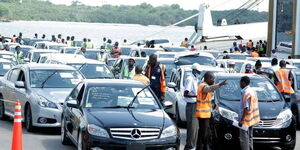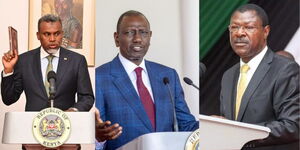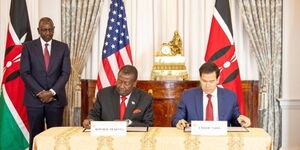List of Hefty Penalties Kenyans Face for Defying KRA Tax Guidelines
The current regime has embarked on increasing the tax base to collect more revenue, as the government moves towards its vision of ensuring it relies on revenues raised instead of loans to finance its operations.
Kenya Revenue Authority (KRA) is the constitutionally mandated body responsible for collecting taxes and ensuring all eligible persons contribute their fair share towards nation-building.
To that end, the taxman spells out tax offences and various penalties that each of the infractions attracts.
According to a guideline published on the KRA website, late filing of Pay as You Earn (PAYE), attracts a penalty of 25 per cent of the tax due, Ksh 10,000 or whichever is higher.
Those who pay PAYE tax late, on the other hand, attract a penalty of 5 per cent of the tax due and an interest of 1 per cent per month.
On the other hand, for those who fail to deduct Withholding VAT and Withholding Rental Income Tax, KRA requires they pay 10 per cent of the tax due.
For those who make late Withholding Tax (Withholding Income Tax Withholding VAT, Withholding Rental Income tax) payments face a penalty of 5 per cent of the tax due.
Meanwhile, late filing of Monthly Rental Income Tax returns (MRI) attracts a penalty of 5 per cent of the tax due, Ksh2,000 or whichever is higher for individuals. Meanwhile, the offence attracts a penalty of 5 per cent of the tax due or Ksh20,000, whichever is higher for non-individuals.
By the same token, for the offence of late payment of MRI, a person faces a penalty of paying 5 per cent of the tax due and an interest of 1 per cent per month.
Conversely, Kenyans who pay Stamp Duty late are required to pay 5 per cent of the duty payable. While the late filing of the Excise Duty returns attracts a penalty of 5 per cent of the tax due, Ksh 10,000, whichever is higher.
Late payment of Exercise Duty Tax attracts a penalty of 5 per cent of the tax due and an interest of 1 per cent per month.
Further, the late filing of VAT Returns attracts a penalty of 5 per cent of the tax due or Ksh 10,000 whichever is due. Similarly, the late payment of the VAT tax attracts a penalty of 5 per cent of the tax due and an interest of 1 per cent per month.
The late filing of Income tax company or partnership returns attracts a penalty of 5 per cent of the tax due or Ksh20,000 whichever is higher.
Further, the late payment of Income Tax for non-individuals attracts a penalty of 5 per cent of the tax due and an interest of 1 per cent monthly.
KRA further specifies that non-residents found culpable of late payment of Income tax are required to pay 5 per cent of tax due and an interest of 1 per cent each month.
Conclusively any KRA PIN-related offences attract a Ksh2,000 penalty for each offence.












